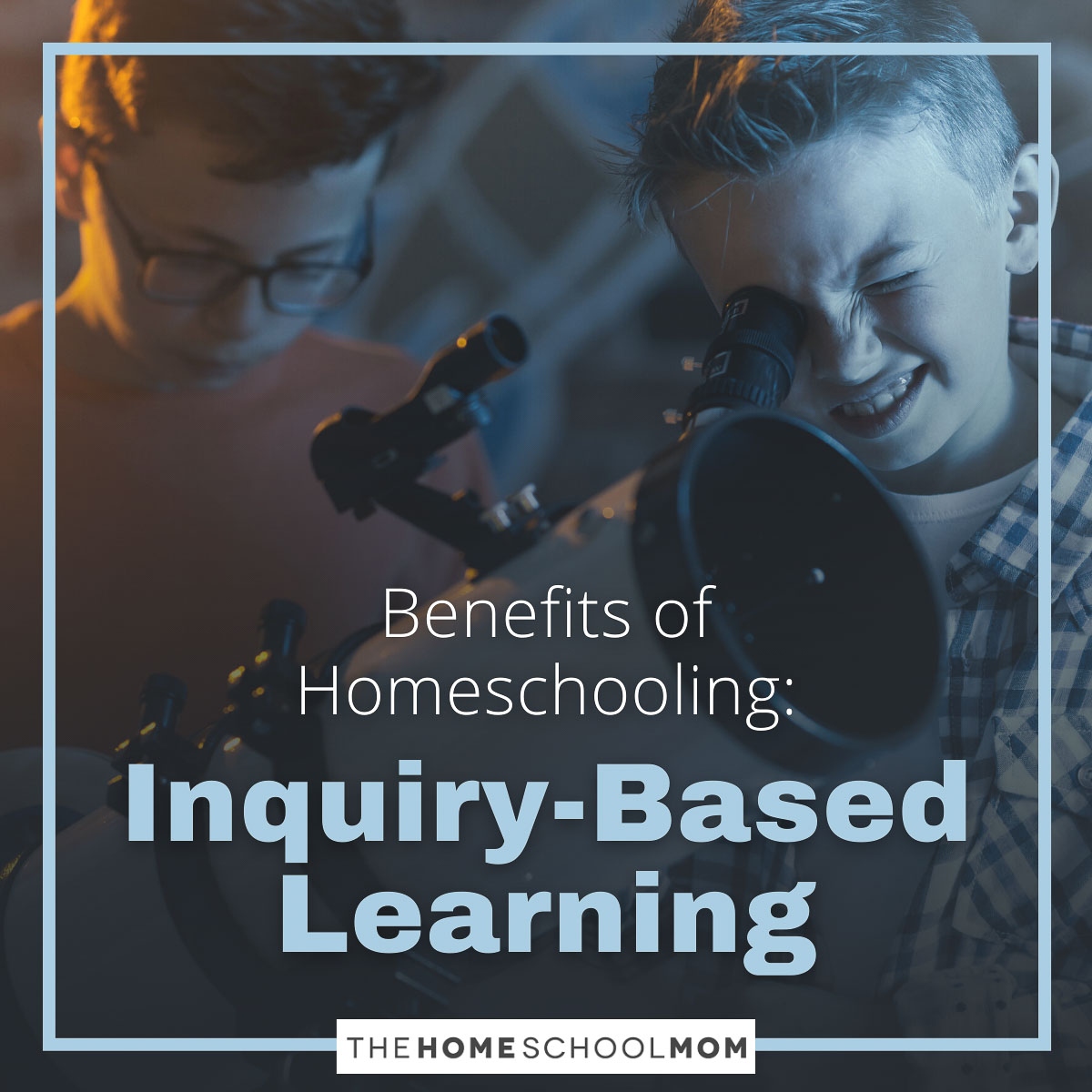I have written about how homeschooling parents can use a dialogue-based approach to education, which I see as a big potential benefit to home education. While many public schools have been forced into test-prep mania that defines success very narrowly, homeschoolers can use this educational approach to develop critical thinking and evaluate learning.
Scientific American has a recent story that reflects my thoughts on the unfortunate increased emphasis on standardized testing in public education:
. . . formal education, which is driven by test taking, is increasingly failing to require students to ask the kind of questions that lead to informed decisions.

Learning To Learn Is the Key
The article goes on to explain that "learning to learn" is the key, and author Dennis M. Bartels describes how researchers have found that development of the ability to ask good questions is a big part of that.
At the Exploratorium in San Francisco, we recently studied how learning to ask good questions can affect the quality of people's scientific inquiry. We found that when we taught participants to ask "What if?" and "How can?" questions that nobody present would know the answer to and that would spark exploration, they engaged in better inquiry at the next exhibit-asking more questions, performing more experiments and making better interpretations of their results. Specifically, their questions became more comprehensive at the new exhibit. Rather than merely asking about something they wanted to try ("What happens when you block out a magnet?"), they tended to include both cause and effect in their question (read more at Scientific American).
This is no surprise to me. My own kids learned to ask questions and think critically, often referred to as inquiry based learning, because these were exactly the kinds of questions I asked them. Our conversations were and are deep and interlinked, spiked with references to what we're reading, videos we've watched, TED Talks we've listened to, and things we've learned from field trips and classes and NPR and Nova.
Inquiry-Based Learning Leads to Critical Thinking
I teach at an academic homeschool co-op, and I see the kids there blessed with the same opportunity to analyze things from all angles, to truly engage concepts by working with one another and with knowledgeable adults who provide resources, guide experience, and ask questions.
When the kids work on projects together or participate in critiques, I see them stretch their inquiry skills. I also see them translate these skills into strong writing skills over time.
Further, it may be counter-intuitive, but inquiry-based learning does lead to accumulation of knowledge, or "content," as explained at public television's Thirteen Ed Online website.
The Scientific American article concludes that these techniques work better outside the typical public school classroom. I think that's probably true given the current atmosphere in many classrooms, where teachers are required to focus on standards of learning. This creates priority for memorizing facts but doesn't allow time to develop rich context for them. Large class sizes, social issues, and many accepted school defaults (collaboration is "cheating;" getting wrong answers is "failure," etc.) also make inquiry-based learning harder to do in traditional classrooms.
Museums and informal learning settings are ideal for the kind of inquiry-based learning that develops critical thinking, says Scientific American.
As I read the article, I found myself thinking--the author doesn't know that what he is describing is a major component of homeschooling.
In particular, science education is at risk for becoming ineffective if it doesn't focus on inquiry.
Homeschoolers are able to live the scientific method, creating thought experiments and real experiments to test ideas and hypotheses. Along the way, our children gain crucial factual knowledge that becomes well-engrained, because it was integrated contextually.
However, we homeschoolers, too, can get caught up in moving through curriculum and not taking advantage of the time and intimacy we have with our kids. No matter our homeschooling style, we need to remember to keep inquiry at the forefront of our children's education.
As the Scientific American article concludes:
Asking juicy questions appears to be a transferable skill for deepening collaborative (scientific) inquiry. . . .
Have you encouraged your kids to ask juicy questions today?




 A popular speaker at homeschooling conferences, business groups, and parents’ groups, Jeanne Potts Faulconer homeschooled her three sons in North Carolina, Mississippi, and Virginia for twenty years. Holding her Master of Arts degree in Communication, Jeanne conducted portfolio evaluations for Virginia homeschoolers for evidence of progress for many years. Jeanne is a former college faculty member, former editor for several publications, news correspondent for WCVE, and former director of Brave Learner Home. She is the contributing editor for TheHomeSchoolMom newsletter and writes the popular Ask Jeanne column addressing homeschool parents' questions here at TheHomeSchoolMom.
A popular speaker at homeschooling conferences, business groups, and parents’ groups, Jeanne Potts Faulconer homeschooled her three sons in North Carolina, Mississippi, and Virginia for twenty years. Holding her Master of Arts degree in Communication, Jeanne conducted portfolio evaluations for Virginia homeschoolers for evidence of progress for many years. Jeanne is a former college faculty member, former editor for several publications, news correspondent for WCVE, and former director of Brave Learner Home. She is the contributing editor for TheHomeSchoolMom newsletter and writes the popular Ask Jeanne column addressing homeschool parents' questions here at TheHomeSchoolMom.
How do I ask "juicy questions"? I have an-almost-3 y/o so I don't even know if asking is appropriate at this age but I don't know what to ask. I don't know what questions count.